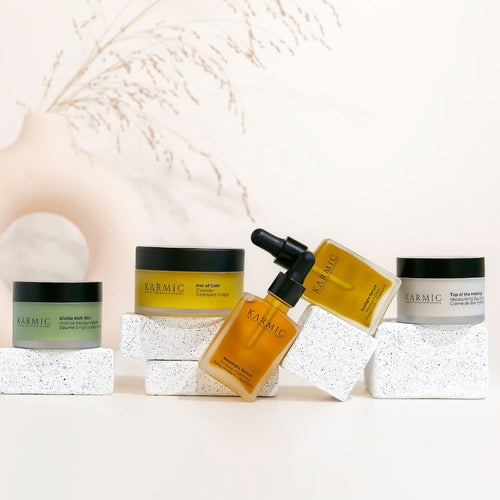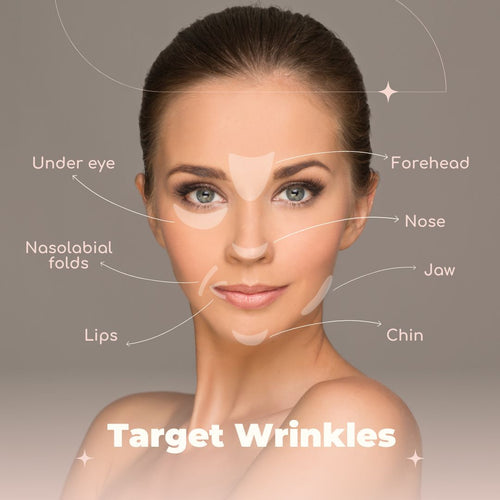Navigating the world of skincare can feel like an intricate dance, especially as we aim to match our routines with our evolving skin needs through different decades. Whether you're a skincare newbie or a seasoned aficionado, understanding the essentials of a good skin care routine can help maintain your skin’s health and vitality.
In this comprehensive guide, we'll delve deep into a routine that suits every age, focusing exclusively skin care using natural, organic, and non-toxic ingredients that nurture the skin gently and effectively.
Understanding Your Skin: The Basics
Before diving into products and routines, it's essential to understand your skin type. Skin can be generally classified into five types: normal, oily, dry, combination, and sensitive. Identifying your skin type will help you choose products that can address your specific needs effectively and without harm.
Key Characteristics:
- Normal: Well-balanced hydration.
- Oily: Shiny appearance, prone to breakouts.
- Dry: Rough, itchy, or flaky.
- Combination: Oily in some areas and dry in others.
- Sensitive: Reacts easily to certain ingredients.
Essential Skincare Routine Steps
Step 1: Cleansing
Cleansing is the cornerstone of any skincare routine. It removes dirt, oil, and impurities, and is the first step in preventing clogged pores and acne.
- Morning and Night: Cleanse your skin twice a day to keep it fresh and free from pollutants.
- Product Choice: Use a gentle cleanser that doesn’t strip your skin of its natural oils. Ingredients like aloe vera or neem are excellent for their natural antibacterial properties and gentle cleansing effects.

Step 2: Toning
Toners help restore the skin’s pH balance, tighten pores, and better prepare the skin for moisturisers and serums.
- Application: Apply toner with a soft cotton pad, gently wiping across the face.
- Ingredients to Look For: Witch hazel is a natural astringent that reduces oiliness without drying the skin. Rosewater soothes and hydrates, making it ideal for dry or sensitive skin types.
Step 3: Serum Application
Serums are concentrated solutions that target specific skincare concerns like aging, dark spots, or dehydration, using potent natural ingredients.
- Active Ingredients: Look for serums that contain turmeric extract for its antioxidant properties, or Bakuchiol and Amla oils, which is rich in vitamins A and C to help promote collagen production and skin regeneration.

Step 4: Moisturising
Moisturisers hydrate and protect the skin by sealing in moisture, a crucial step for all skin types.
- Choosing a Moisturiser: Squalane, derived from olives, provides lightweight hydration suitable for even oily skin types, while shea butter is perfect for dry skin due to its rich, nourishing properties.
Step 5: Sun Protection
Protecting the skin from harmful UV rays is crucial to prevent premature aging and skin cancer.
- Application: Apply a natural moisturising sunscreen that contains zinc oxide or titanium dioxide every morning, regardless of the weather.
Advanced Skincare Considerations
Eye Creams and Night Creams
- Eye Creams: Target the delicate area around the eyes to reduce dark circles and puffiness with caffeine or cucumber extract.
- Night Creams: Ingredients like lavender or chamomile not only soothe the skin but also promote relaxation, enhancing overnight skin repair.
Weekly Treatments
- Exfoliation: Use a gentle scrub made from oatmeal or almond meal once a week to remove dead skin cells and promote new cell growth.
- Masks: A weekly mask of bentonite clay for oily skin or a hydrating mask made from mashed avocado can address specific skin concerns.
Skin Care Through the Decades
| Age Group | Focus | Recommended Products |
|---|---|---|
| Teens | Acne and oil control | Neem cleansers, rosewater toners |
| 20s | Prevention and hydration | Turmeric serums, squalane moisturisers |
| 30s | Anti-aging and brightness | Bakuchiol serums, vitamin C rich products |
| 40s | Firmness and elasticity | Peptide serums, shea butter moisturisers |
| 50s+ | Deep hydration and renewal | Jojoba oil products, lavender night creams |
Frequently Asked Questions
1. What is the best way to determine my skin type?
Skin types can generally be identified as oily, dry, combination, normal, or sensitive. Wash your face with a gentle cleanser and wait an hour. How your skin feels (tight, greasy, or comfortable) will help determine your type.
2.How often should I wash my face?
It is recommended to wash your face twice daily, morning and night, to remove impurities and excess oils.
3. What is the correct order to apply skincare products?
Start with the lightest product (serums) and end with the heaviest (moisturiser or sunscreen) to ensure proper absorption.
4. Can I use a moisturiser if I have oily skin?
Yes, even oily skin needs moisturisation. Choose a lightweight, non-comedogenic moisturiser that won’t clog pores.
5. How can I prevent acne breakouts?
Keep your face clean, avoid heavy makeup, use non-comedogenic products, and don't pick at your skin. Incorporating products with neem or triphala can also help prevent and treat acne.
6. What are the benefits of using a toner?
Toner can help close pores and tighten cell gaps after cleansing, reducing the penetration of impurities and environmental contaminants into the skin.
7. Is it necessary to use a serum?
While not mandatory, serums can address specific skincare concerns like aging, hydration, or pigmentation more effectively due to their high concentration of active ingredients.
8. What is the difference between physical and chemical exfoliants?
Physical exfoliants use scrubbing particles to remove dead skin cells mechanically, while chemical exfoliants use acids to chemically dissolve these cells.
9. How often should I use an exfoliant?
It depends on your skin type and the type of exfoliant, but generally, it's safe to exfoliate 2-3 times a week for normal skin. Sensitive skin may require less frequent exfoliation.
10. Why is sunscreen important in a skincare routine?
Sunscreen protects the skin from harmful UV rays that can cause premature aging and skin cancer.
11. What should I do if my skin reacts badly to a new product?
Discontinue use immediately and give your skin a break. Consider doing a patch test on a small area of your skin with any new product before fully incorporating it into your routine.
12. How can I reduce the appearance of pores?
Regular cleansing and exfoliating can keep pores clear. Using a clay mask and products with niacinamide can also help minimise the appearance of pores.
13. Can diet affect my skin?
Absolutely. Foods high in sugar and dairy can trigger acne in some people, while a diet rich in antioxidants and healthy fats can improve skin health.
14. What natural ingredients are beneficial for the skin?
Ingredients like aloe vera, hemp oil, turmeric, amla oil, and avocado are great for various skin types and conditions due to their soothing, moisturising, and antibacterial properties.
15. How do I handle sensitive skin?
Use gentle skincare products formulated for sensitive skin, avoid common irritants like alcohol and fragrances, and always moisturise to protect your skin barrier.
Conclusion
Embracing a skincare routine that incorporates natural and organic ingredients can profoundly benefit your skin health across all ages. By understanding the basics and adjusting your routine as you age, you can maintain healthy, vibrant skin that not only looks great but feels great too.




